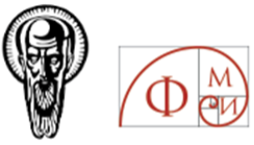University of Graz
Founded in 1585, the University of Graz is the second oldest university in Austria. With about 31.000 students and 4.300 employees, it is one of the largest institutions of higher education in Austria. The university has a strong international profile and is involved in numerous global networks (e.g. Coimbra Group and Utrecht Network). Through these networks and various projects and activities, it is connected with about 500 international partner institutions. It is a member of the “Arqus European University Alliance”, which receives EU funding in the Erasmus+ action “European Universities”. The university has also been very active in international educational projects, both as a partner and as a coordinating institution. Since 2014 the university has been actively participating in Erasmus+ projects. Due to its experience of both participating in and coordinating international research and educational projects, the University of Graz can draw on the expertise and good practice that will contribute to the success of the present project.
Role in the project
The University of Graz, as project coordinator, will take the lead in project management and overall monitoring of the process of project implementation. It will, however, contribute greatly to all four work packages of this project. The UNI-IT, the IT department of the University of Graz, will provide the infrastructure and host the training program and will work in close cooperation with Sofia University on all activities under work package 2 related to the technical implementation of the digital learning environment.
Project team | Austria
- Univ.-Prof. Dr.phil. Barbara Gasteiger-Klicpera (project lead)
- Katharina Maitz, MA PhD
- Franziska Reitegger, MSc
- Lea Hochgatterer, MSc
- Mag. Heidi Kinast
- Michaela Wright, MSc
- UNI-IT
University of Silesia in Katowice

The University of Silesia in Katowice is one of Poland’s largest and most dynamically developing public universities. The university serves almost 22 000 students on full-time and part-time studies. The community also consists of nearly 2000 teachers and researchers. Founded in 1968, the university quickly established a reputation as a vibrant academic institution and an important interdisciplinary research hub. With a tradition of launching new programs best to meet the needs of rapidly changing labor markets, the university offers students a variety of programs and specialized fields of study. The university actively participates in European Commission initiatives focused on educational and scientific development and realizes projects within the Horizon, Creative Europe, Erasmus +, Interreg, Visegrad Funds, EEA Funds, Structural Funds, and others.
Role in the project
The University of Silesia will bear the main responsibility for work packages 3 and 4, concerning implementation and dissemination activities. Even though all partners will be involved, the University of Silesia will have oversight and bear the responsibility for bringing the results together.
Project team | Poland
- Assoc. Prof. Katarzyna Borzucka-Sitkiewicz
- Katarzyna Kowalczweska-Grabowska, PhD
- Assoc. Prof. Marcin Gierczyk
Sofia University

Sofia University “St. Kliment Ohridski” is the oldest and largest higher education institution, university, in Bulgaria. Since its establishment it has always played a very important role as the most prestigious educational institute. It is the only Bulgarian university in the QS World University Rankings. The university has 16 faculties and three departments, where over 21,000 students receive their education. Sofia University is the most successful Bulgarian participant in EC R&D initiatives, FP7 and H2020 attracting more than 60M Euro funding. It is well integrated in a number of European research networks and project initiatives. In the me_HeLi-D project, the Faculty of Mathematics and Informatics (FMI), and colleagues from the Department of Computer Informatics will represent Sofia University. The Department of Computer Informatics was established in 1989.
Role in the project
Uni Sofia will support content acquisition, development, harmonization, pre-processing, storage management, versioning, and provisioning with respect to all involved work packages. Its role in the project will be to support – in close cooperation with the IT department of Uni Graz, which is to provide the infrastructure and host the training program – all activities under work package 2 related to the technical implementation of the digital learning environment, including the assessment and selection of suitable building blocks, a user interface, and the structure for content integration. In addition, Uni Sofia will contribute to the co-design activities and usability and accessibility-testing with representatives of the target group.
Project team | Bulgaria
- Assoc. Prof. Ioannis Patias, MSc, PhD, PMP, MBA
- Assist. Prof. Maria Koleva, cand. PhD
- Prof. Kalinka Kaloyanova, PhD
- Dobromira Bankova-Ganeva, cand. PhD
The Educational Research Institute (ERI)

The Educational Research Institute (ERI) was established in 1965 and is the central institution in Slovenia for research in education undertaking basic research, development and applied projects on issues of current interest in all sectors of education and related areas. ERI performs its activities in the context of the national research program as a public service. Its work is carried out by 43 experts coming from different educational fields and covering different research areas and methodological approaches of educational research (pedagogy, andragogy, sociology, psychology, philosophy, anthropology, rhetoric and argumentation, political science). The latter allows ERI to successfully carry out a multidisciplinary approach and ensure to tackle the research problems and topics from different perspectives and enable the overall approach to lifelong learning. ERI has a high reputation within the Slovenian educational space and has been recognised as a coordinator of many concluded and ongoing research projects in the field of education and wider.
Role in the project
ERI will take the lead for work package two, where the modules, the centerpiece of the program, will be developed. ERI and its researchers are highly qualified to oversee the activities of creation and development.
Project team
- Manja Veldin, MA
- Igor Peras, MA
- Dr. Maša Vidmar
- Mag. Suzana Geržina

